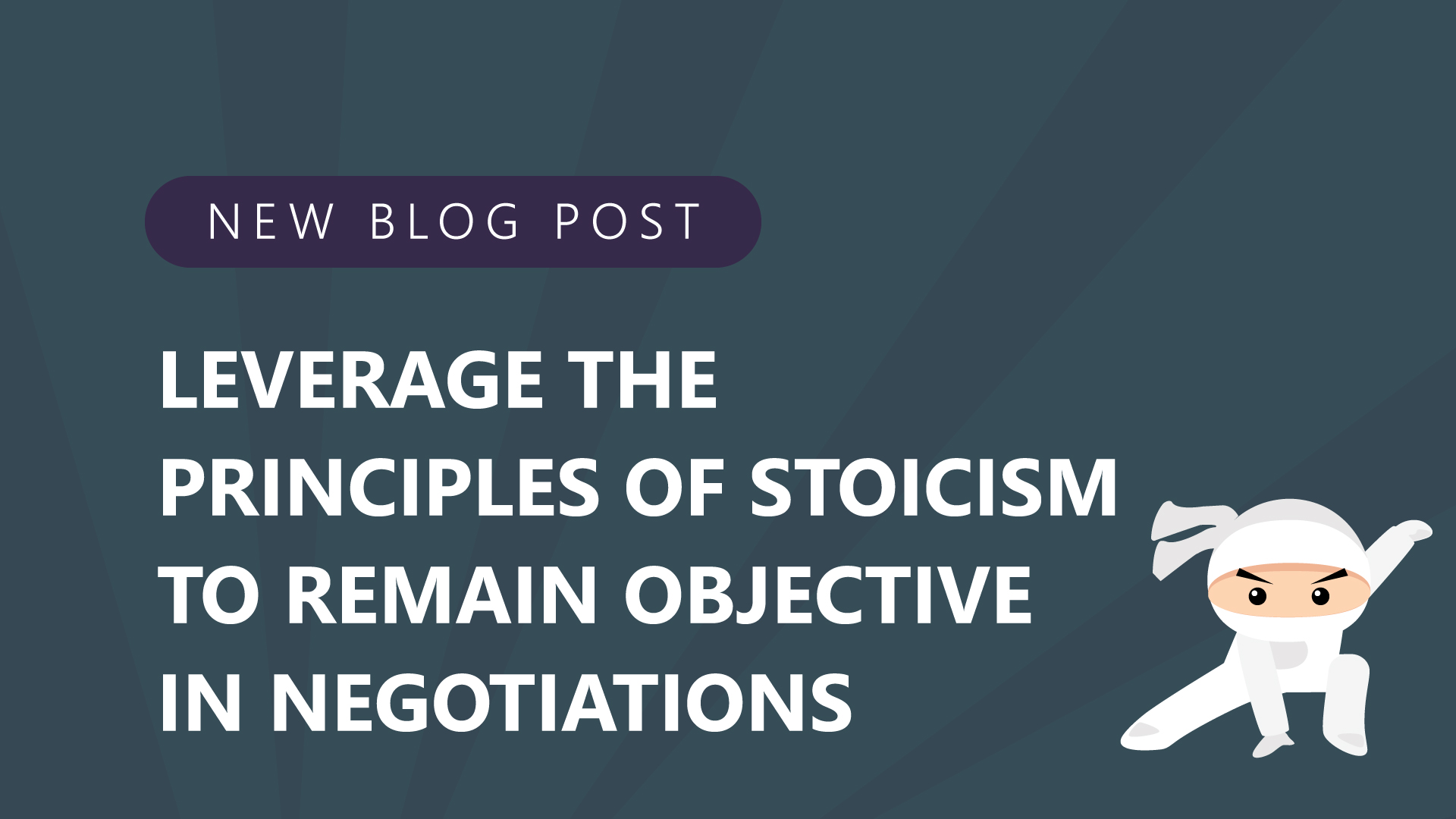Can you take something subjective and make it objective? Is it possible?
Negotiators can be so focused on their own arguments that they lose objectivity. Lacking an objective perspective can prevent you from finding common ground.
According to Doug Witten, if you can see situations objectively, without judgment, you’ll perceive things more accurately and make better decisions. Embracing stoicism might be just what you need to be objective.
Stoicism places value on clear and unbiased thinking as a path to contentment, truth, and living a good life.
When you view negotiation as a series of decisions, objectivity is going to help you see all sides of a challenge, problem, etc. It helps you identify blind spots and determine what the other side needs to potentially reach an agreement.
Bias will keep you from properly assessing risk or fully appreciating the other side’s perspective. Confirmation bias can create barriers to resolution and lead to poor decision-making.
One of the pillars of stoicism is humility. Humility is your secret weapon if you want to stand out as a negotiator.
Embracing humility in negotiation
Effective negotiators recognize that they don’t know everything and can learn from the opposing view. They benefit from being open-minded and can see the strengths and weaknesses of their position.
You must enter a situation, test your assumptions, challenge your beliefs, and adjust your expectations based on what you learn. If you can fully understand both sides, it can provide information about relative risk and bargaining power.
Epictetus said, “It’s impossible to begin to learn what one thinks one already knows.” If you want to improve, you have to appear clueless in some situations. That’s where you can flex humility.
You have to remain teachable. If you think you know something, you’ll never learn anything new from anyone. Approach everything with a beginner’s mind. Humility opens the door to being more persuasive to the other party.
Humility leads to listening—one of the most effective negotiation tools—reciprocity, etc., which opens them up to influence. It generates goodwill and leads to momentum.
Problems arise when you’re driven by ego and emotions. If you’re focused on ego, you can’t be humble. Humility can lead to credibility and build trust. It can make a positive impact if you’re confident enough to acknowledge what you don’t know.
What is another pillar of stoicism? Empathy.
The application of empathy in negotiation
Empathy is one of the most important traits of great negotiators. Empathy helps you see the conflict from all sides. Stoics value doing good for the benefit of the interconnected society. Taking this approach has strategic value. You have to acquire the habit of entering as far as you can into the other person’s mind. What’s being said behind someone’s words?
Learn more about stoicism and how the principles of stoicism can help you become a better negotiator in episode #403 of Negotiations Ninja.

